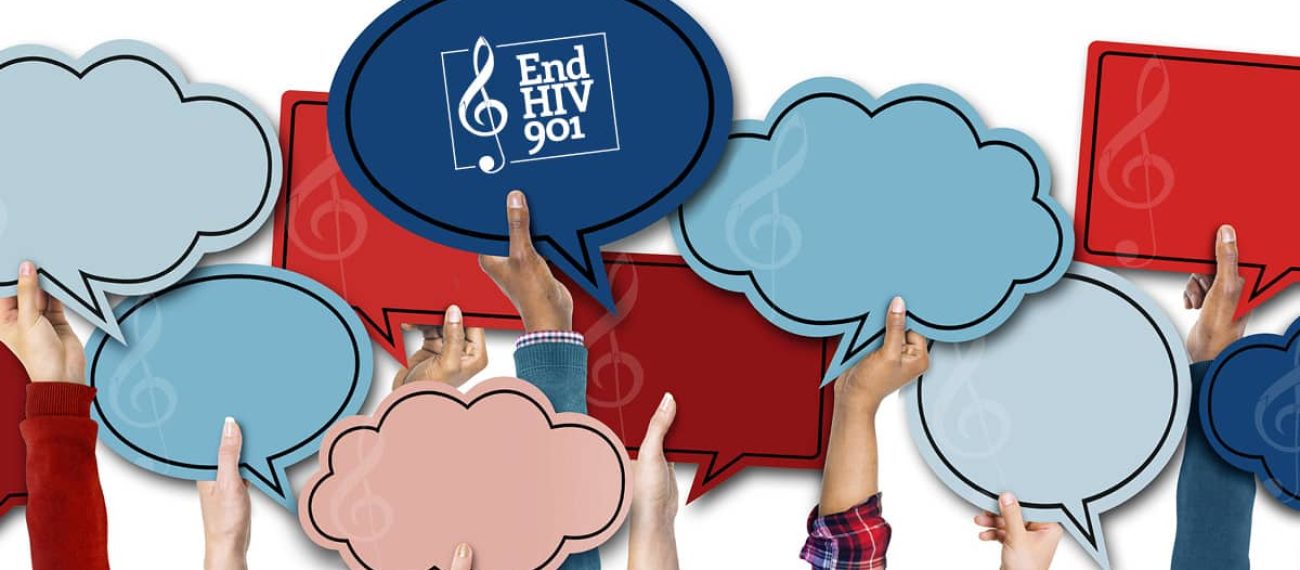HIV stigma – negative beliefs and attitudes about people with HIV – can show up in many ways, from the way we behave to the words we use.
Stigma affects the emotional and mental health of people living with HIV, so it’s important to be conscious of and careful with our thoughts, behaviors and speech.
We can do our part to stop HIV stigma by talking openly about HIV. Normalizing the subject will give people opportunities to learn more about HIV, to correct misconceptions about it and can help people with HIV feel welcomed and accepted.
However, it’s important to be mindful about the words we use when discussing HIV. Certain words and language may have a negative meaning for those who are at a high risk for HIV or those who have HIV.
Consider these problematic phrases and preferred words:
- Problematic word: AIDS
Preferred word: HIV or HIV and AIDS
Why: AIDS itself isn’t a condition. It’s a range of conditions, or a syndrome, that occurs when a person’s immune system is weakened by the HIV infection. - Problematic phrases: To catch AIDS, to catch HIV, to pass on HIV
Preferred phrases: To be diagnosed with HIV, to acquire HIV, to transmit HIV.
Why: AIDS can’t be transmitted or caught. HIV can be transmitted, but it’s not hereditary. People get HIV. - Problematic phrase: unprotected sex
Preferred phrase: Sex without a condom or medicines to prevent or treat HIV (such as pre-exposure prophylaxis (PrEP) or antiretroviral therapy)
Why: “Unprotected sex” is often associated with sex without a condom. Use more precise terms, as there are numerous ways outside condom use to engage in safe sex to prevent HIV. - Problematic phrase: Body fluids
Preferred phrases: blood, amniotic fluid, semen, pre-ejaculate, vaginal fluids, rectal fluids, breast milk
Why: Only some body fluids transmit HIV, so “body fluids” is too broad of a term. Be specific. - Problematic phrases: To battle HIV and/or AIDS, War against HIV and/or AIDS
Preferred phrase: Response to HIV and AIDS
Why: Words like “battle” and “war” are militaristic and may lead others to think that people with HIV must be fought or eliminated. - Problematic phrases: High(er) risk groups, Groups with high-risk behavior
Preferred phrases: high-risk behavior, highly-affected communities, key populations, key populations at higher risk
Why: These phrases imply that being a member of a particular group can result in an HIV-positive diagnosis, and may give a false sense of security to those who do not identify in those groups. - Problematic words: Victims, sufferers, sick, contaminated
Preferred phrase: people/person with HIV
Why: Some people with HIV feel that these words imply that they have no power or control over their lives. Other unhelpful terms negatively define people with HIV by the condition. These words also segregate the people who have HIV. - Problematic phrases: AIDS patient, HIV patient, patient
Preferred phrases: Person with AIDS, person with HIV, person living with HIV, HIV-positive person
Why: The word “patient” implies a constant state of illness, which can be misleading and demoralizing. Outside of a clinical context, a person isn’t a patient. - Problematic phrases: Positives, HIVers, AIDS or HIV carrier(s)
Preferred phrases: HIV-positive people/person, people/person with HIV, people/person with AIDS
Why: A person isn’t HIV or AIDS. A person lives with HIV once they get the virus or progress to having an AIDS diagnosis.
Learn more about HIV stigma at CDC.gov.
